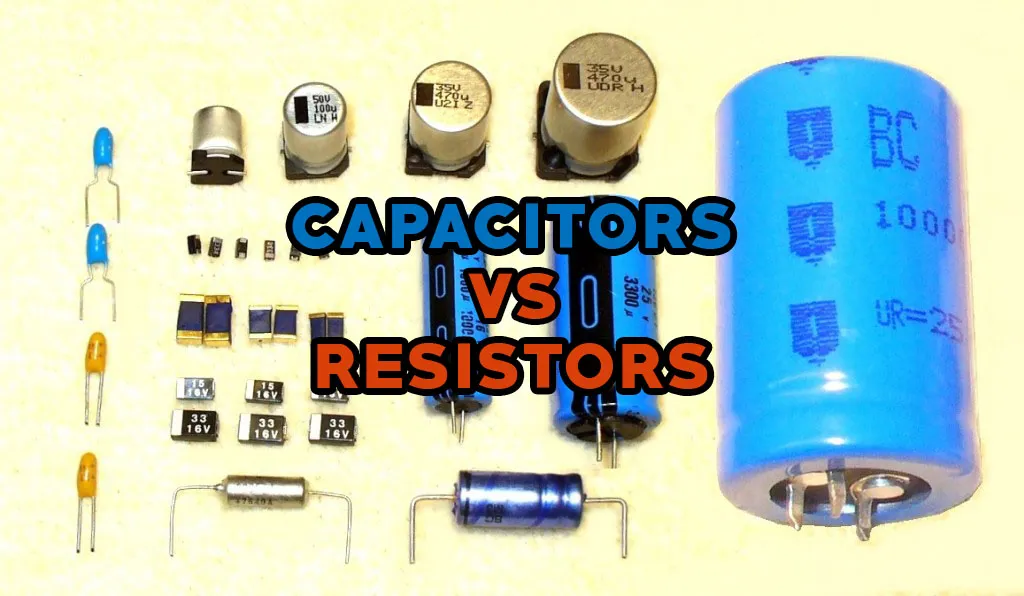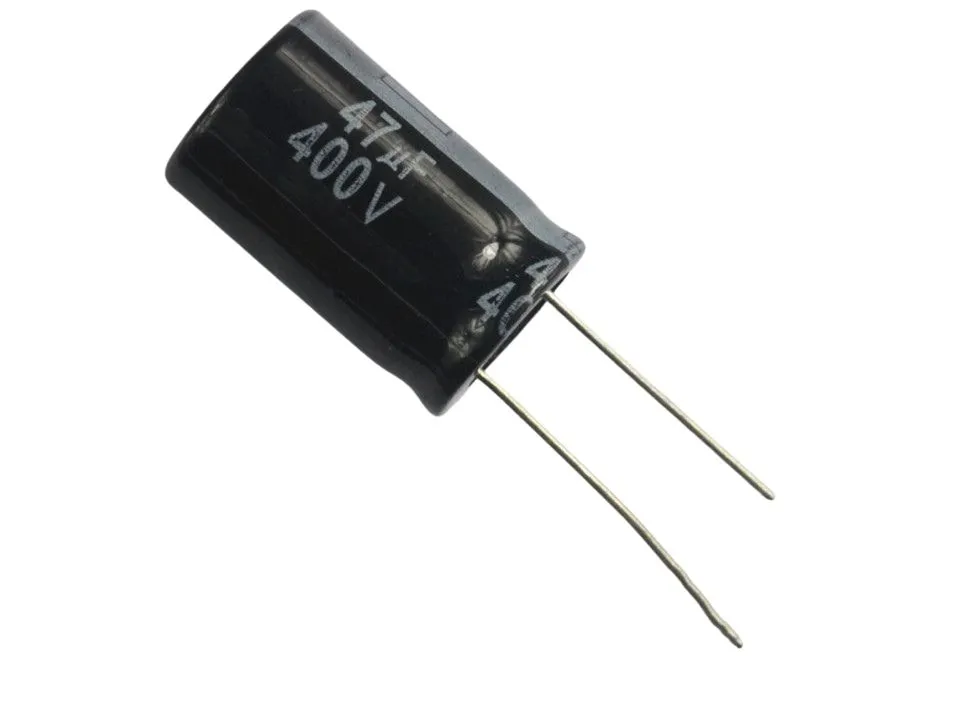Capacitor vs Resistor: What's the Differences?
If you are an electronics geek, then you love to read out the comparison of Capacitor vs Resistor. For those who are just getting started, however, deciding what components to use can be confusing. Our goal in this article which is about resistor vs capacitor is to provide you with the information you need to determine whether a capacitor and resistor is the right choice for your project.

Capacitor vs Resistor
What Is A Resistor?

What is a Resistor?
It limits the flow of current in a circuit, which is an essential function of most circuits, and it is a passive two-terminal electrical component. Their resistance values are typically stable over a wide range of environmental conditions due to their construction of metal wires or carbon. A working circuit dissipates electric power in a manner that does not generate light, but does generate heat.
Whenever a resistor's current increases, its voltage across its terminals increases as well. In electrical terms, resistance is the result of a resistor. Ohms are generally used to measure circuit resistance. R=V/I represents this relationship.

What is Capacitor
An insulator is placed between two metal plates to create a capacitor. The key to making them so special is their ability to store energy, which makes them a fundamental passive component in electrical circuits. When the circuit needs it, they provide potential energy to the circuit in an electric field. An electric charge can be stored in a capacitor based on its capacitance, which is specified when the capacitor is built. "Farads" is the unit of measurement for capacitance. Voltage drops in a circuit are prevented by capacitors by supplying energy.
Capacitor vs Resistor: Differences?
Function of Capacitor vs Resistor
Resistors control the flow of current through an electrical circuit by controlling the resistance. It is used for a number of things, including amplifying signals, limiting current flow, adjusting signal levels, terminating transmission lines, etc. A safe amount of current can be flowed through it. Insulators are used between parallel conductor plates in capacitors. As a separate charge from the positive charge, a capacitor serves this purpose. Known as capacitance, capacitors affect electrical signals.
Applications
Electronic devices almost always contain capacitors and resistors. Various parts of a computer are controlled by resistors. Energy is stored in capacitors for quick bursts of power when needed. Capacitors store energy for quick bursts of power, while resistors limit the flow of current in cell phones.
Other electronic devices use capacitors and resistors, including TVs, radios, amplifiers, and security systems. In order for the device to work properly, they both play an important role. When building or repairing an old project, you need to use the right component. As a result, your project will run smoothly and efficiently.
Unit Of Measurement
When measuring resistors, ohms are used, whereas when measuring capacitors, farads are used. One kilo-ohm resistor, for instance, is 1000 ohms or 1 kilo-ohm. Ten millionths of a farad is one microfarad. If you want your project to work correctly, you need to use the right unit of measurement.
Use
Your project's purpose should be considered when choosing which component to use. Circuits are typically controlled with resistors. Energy is stored in capacitors so they can be quickly released when needed. Capacitors are the best components for absorbing sudden voltage changes. A resistor is the best choice when it comes to controlling current in a circuit.
To ensure your project runs smoothly and performs at its best, it is important to choose the right component. Choosing components for your project will be easier if you understand capacitors and resistors.
Choosing the Right Component
After reading the comparison of Capacitor vs Resistor, I hope you know the real difference between each component. Now It's important to consider the purpose of a component when choosing one for your project. Resistors are the best choice for limiting or regulating current. Conversely, a capacitor is better suited to storing energy.
Power and voltage ratings are important to consider when choosing components. Make sure a resistor can handle more voltage than an AC circuit's voltage if it's being used in an AC circuit. AC circuits should also use capacitors that can store a sufficient amount of energy to be effective.
A component's size should be considered when choosing it. Choosing a bigger capacitor will provide more energy storage. It's better to use resistors in small spaces if you're trying to limit current. The best way to choose capacitors and resistors for your project is to understand the differences between them. It is possible to ensure peak performance for your project by choosing the right component.
Faqs
Question 1: What is the power loss of resistors?
Answer: There are power losses associated with resistors. Resistance in a circuit wastes energy through power loss. Your circuit components will also become hot when large amounts of power flow through them.
Question 2: What is the effect of capacitors on power?
Answer: Energy is stored in capacitors, which allows them to increase power. It can produce short bursts of power when needed by releasing this energy rapidly. Nonetheless, you should only use this power briefly; if you use it for long periods of time, your circuit could become damaged.
Question 3: Which is better: capacitor or resistor?
Answer: Resistors are not required for capacitors, but they are sometimes used in electronic circuits to change their characteristics and frequency response. Circuits with capacitors change their time constants as a result.
Question 4: Capacitors with resistors serve what purpose?
Answer: In an RC circuit, a capacitor is connected to a resistor, and a power source is connected to a voltage source. Capacitors discharge their charges through the circuit when they start discharging, and the resistor slows their movement once that happens. Capacitor discharges dissipate electricity stored in its potential.
Final Verdict
So, I hope you know all the things related to Capacitor vs Resistor differences from our article. Capacitors store energy in an electric field, while resistors oppose current flow through them. When resistors are used to create electrical circuits and to control the amount of power flowing through them, capacitors are often used to filter out noise or smooth out voltage fluctuations. It all depends on your project's requirements when it comes to choosing the right component.
Related Articles
How Long Do Electrolytic Capacitors Last
How to Charge Capacitor Without Resistor?










